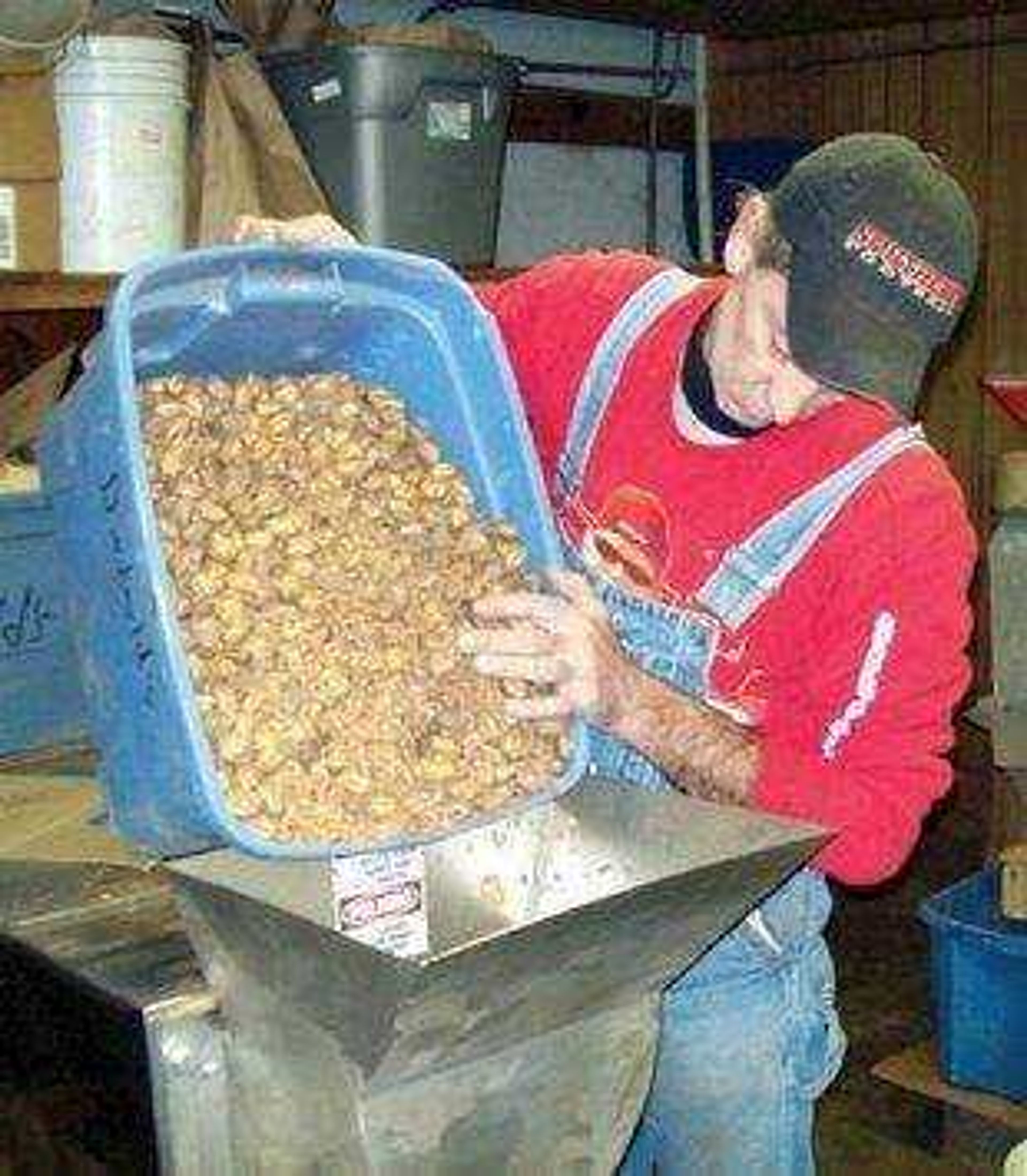Local pecan crop fares better than many expected after severe weather
BENTON, Mo. -- When the remnants of Hurricane Ike moved through the area in the fall, the storms knocked large numbers of pecans off trees at area orchards. But the crop fared better than expected, and one local retailer that cracks and shells pecans is backed up with the biggest demand ever...
BENTON, Mo. -- When the remnants of Hurricane Ike moved through the area in the fall, the storms knocked large numbers of pecans off trees at area orchards. But the crop fared better than expected, and one local retailer that cracks and shells pecans is backed up with the biggest demand ever.
"It's clearly a bigger crop," said David Diebold, owner of Diebold Orchards in Benton. "I don't know if it's the atmosphere or what."
Diebold estimated between 3,000 and 4,000 pounds of pecans are being processed there daily -- and his employees are logging lots of hours to get all the work done.
"We're probably averaging close to 20 hours a day since the day after Thanksgiving," Diebold said. He said employees work through the night.
Due to the demand, Diebold Orchards recently purchased extra machinery. But without September's high winds, some expect the crop would have been even larger.
"The trees were loaded up this year. If we would have gotten everything we knocked off, we would have had twice what we have now," said Jeff House, agronomy specialist for the New Madrid County University of Missouri Extension, who also has pecan trees. "But when the hurricane came through it knocked off pecans by the bucket loads. They fell like ball bearings."
House said he and others were unable to see how many pecans remained on the trees. So the 400-pound yield he has so far was a surprise.
"I'm still pleased with my pecan crop, considering what it went through," House said. "And they're still falling."
House said he and fellow pecan growers were concerned the pecans remaining in the trees would be damaged. "But they made good," he said.
House said it's difficult to estimate a "normal" pecan crop. "They go through a cycle called alternate bearing and don't bear every year," he said. The crop size can depend on watering, hormones, when the frost and freeze hit and more.
Diebold said he has also heard several customers comment that their crop would have been bigger had it not been for the harsh winds.
Picking up pecans
And the yield could be larger than is being seen, according to another local retailer who works with pecans.
"People are not picking them up," said Ronnie Tatum, owner of Tatum's Nursery in East Prairie. "But if people would pick them up and have them processed, we'd have a heck of a year."
Tatum didn't report the same demand as Diebold. There are a few reasons why there are good pecans lying on the ground, said Tatum.
"Most of the people that picked up pecans are dying off," he said. Since there is time and work involved in picking them up -- and then the time and expense to crack and shell them, "it's just not worth it to [a lot of people]," he said.
But pecans laying on the ground aren't an invitation for anyone to pick them up. Tatum reminded people they must have permission. "We've had to ask people to leave our property," he said.
There also isn't a lot of money to be made, Tatum said. In southern states, pecans are harvested the same fashion row crops are locally, so those can be put out more cheaply. "There's nowhere to sell them, and that's the biggest problem," Tatum said.
Pecan tips
Diebold did provide a few tips for those who bring in pecans. "If you let them get too dry, they get brittle and the pecans shatter when cracked," he said. He said to keep them in buckets or bins -- not closed containers or bags -- until they are shelled. That also prevents molding.
Diebold also said it's a good idea to store the pecans in a cool places, such as a garage or carport, and have them cracked within a week.
"You can also freeze them in the shell," Diebold said. "But make sure they are thawed before they are cracked."
Once the pecans have been cracked, they should be dried properly and frozen, he said, because once shelled they can spoil. Someone who isn't familiar with the process can ask staff there for pointers, he said.
Because machines that crack and shell pecans work for specific shell diameters, Diebold advised people keep different sizes separate. A good rule of thumb is to put pecans from different trees in different containers, he said.
"It can just do a better job," he said.
Connect with the Southeast Missourian Newsroom:
For corrections to this story or other insights for the editor, click here. To submit a letter to the editor, click here. To learn about the Southeast Missourian’s AI Policy, click here.









